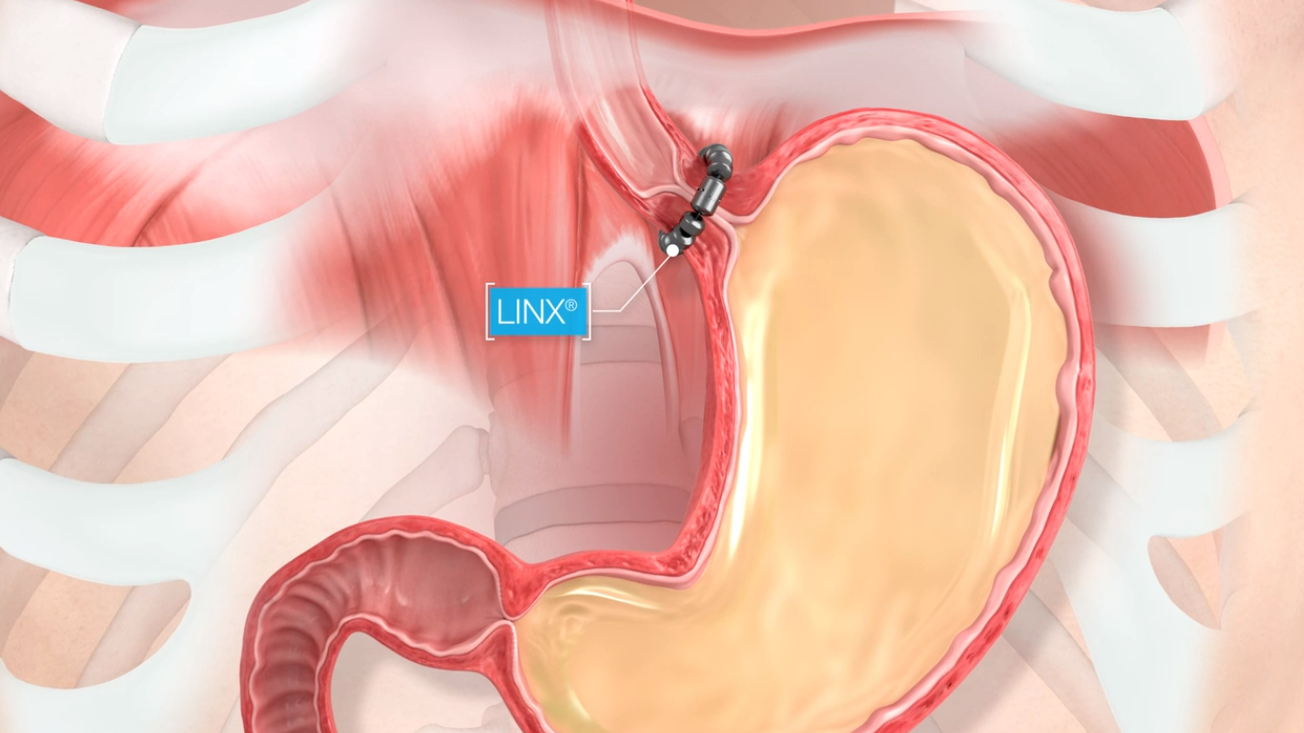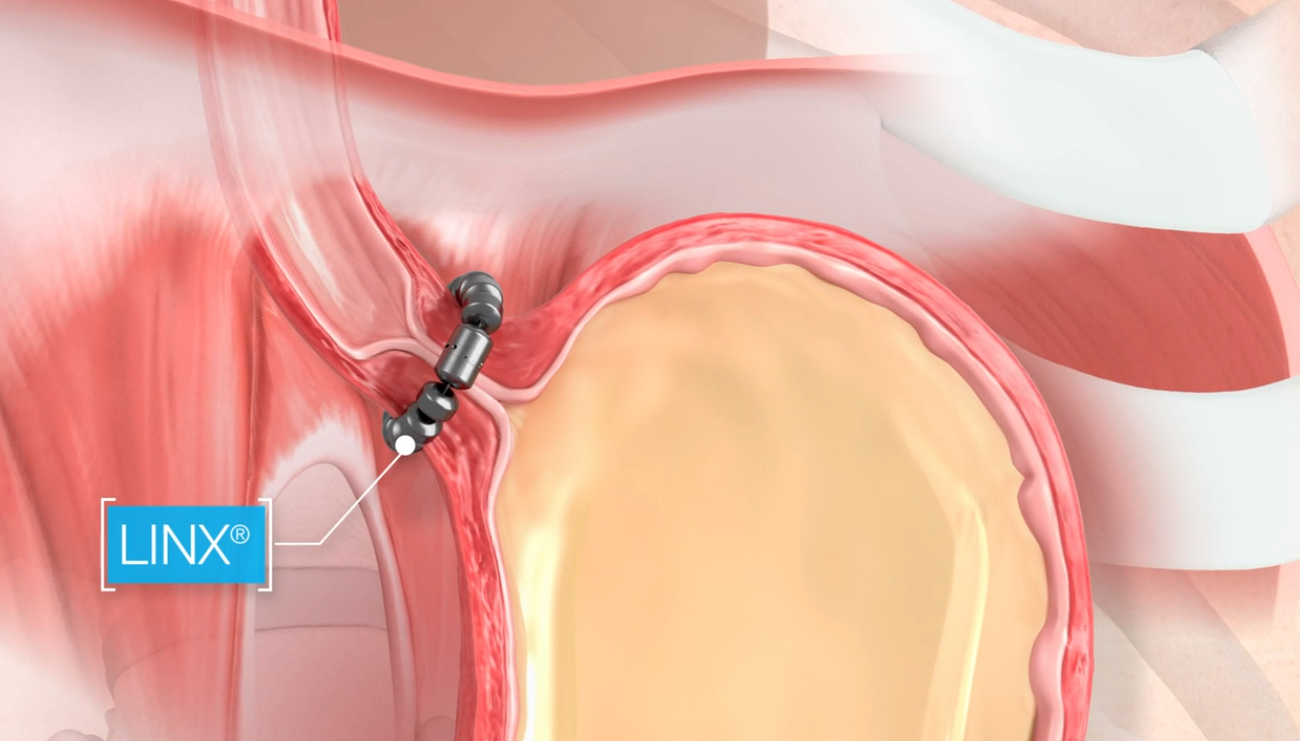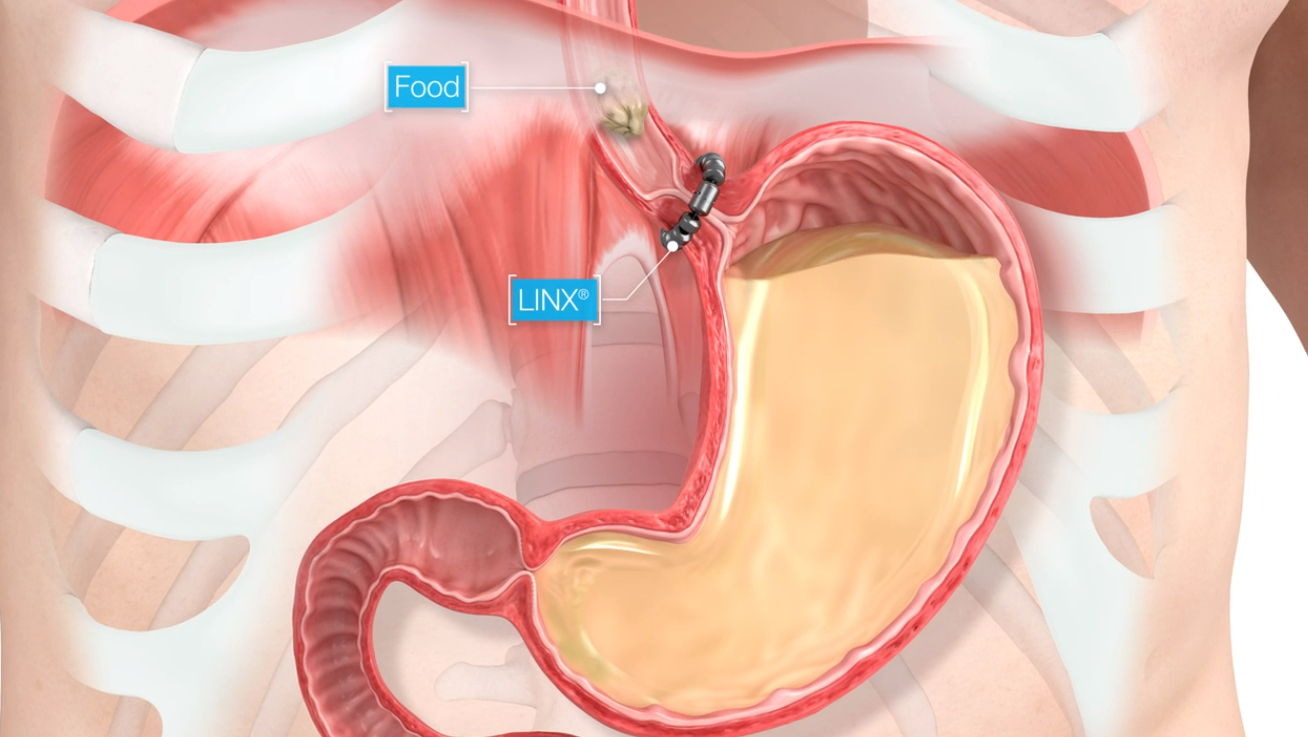Acid Reflux
What causes acid reflux?
Acid reflux occurs when stomach contents flow out of the stomach and up into the esophagus. Normally, a muscle called the lower esophageal sphincter (LES) opens to allow food to enter the stomach and then closes to prevent stomach acid from refluxing. When the LES is weak or relaxes at the wrong time, acid reflux develops.

What symptoms develop due to acid reflux?

Heartburn, a painful, burning sensation in the chest, is the most common symptom of acid reflux.
Depending on the severity of your reflux, you may also experience:
- The sensation of a lump in the throat.
- Difficulty swallowing
- Chronic dry cough
- Chest pain
- Hoarseness
- Sore throat
- Regurgitation
Acid reflux symptoms tend to get worse when you lie down within a few hours of eating.
How is acid reflux diagnosed?
Dr. Bello has the most advanced tools to diagnose acid reflux, such as the bravo pH monitor, esophageal pH catheter impedance monitor and high-resolution esophageal manometry.
These devices are available at the MIB Surgery office, so there is no need to wait for a diagnosis or have a test performed at a different medical center.
How is acid reflux treated?
Treatment for acid reflux begins with medications that neutralize stomach acid or reduce stomach acid production.
There are many types of medications available, from over-the-counter antacids and proton pump inhibitors to stronger prescription medications that may be needed for more severe cases of acid reflux.
Lifestyle changes can also make a big difference. For example, you can limit foods known to trigger acid reflux, eat smaller meals and avoid lying down soon after eating.
It also helps prevent extra pressure in the abdomen, a problem that occurs when you are overweight or wear tight-fitting clothing.
When conservative measures do not help, or your acid reflux is severe, Dr. Abel's team may recommend one of the following procedures:
Stretta Therapy -
Stretta is one of today's most advanced techniques for treating acid reflux that does not respond to medications. It is a minimally invasive procedure that is performed in less than an hour with a specialized endoscope that your MIB surgery physician gently inserts through your mouth and esophagus. The Stretta device delivers low-power, low-temperature radiofrequency energy to the LES. The energy triggers tissue remodeling, thickening the muscle and improving its function. As a result, you have fewer untimely muscle relaxations that allow reflux.
After treatment with Stretta, most patients get lasting relief for 4 to 10 years.
LINX® reflux management system:
a magnetic bracelet is used to strengthen the LES.
Gastric fundoplication:
using laparoscopic surgery, your doctor at MIB Surgery strengthens the LES by wrapping the upper part of your stomach around the muscle.
Transoral incisionless fundoplication: similar to gastric fundoplication but performed with an endoscopic instrument inserted through the mouth into the stomach.
MIB Surgery, a leading medical institution, is passionately committed to offering state-of-the-art procedures aimed at promoting the maximum well-being of our esteemed patients.
Locations USA
Locations Dominican Republic
All rights reserved | MIB SURGERY
Powered by Altech Web Design






